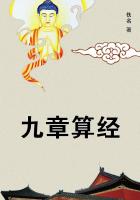Turning to his adversaries, he demanded what was the source of all the abuses and scandals which they charged against the Church? Was it not, he asked, the unwarrantable interference of the nobles in the nominations to ecclesiastical benefices, an interference that was responsible for having even children who were too young to hold an apple in their hands appointed to the charge of populous parishes, in order that the relatives of these children might grow rich on the revenues, and was it not the very men who were guilty of such conduct who were loudest in their denunciation of the Church? On the nobles he laid the blame for oppressing the Church, for introducing unworthy ecclesiastics into offices of trust, for depriving the poor of instruction and education, and for promoting thereby heresy and revolution.
As the year (1559) advanced the state of affairs in Scotland became daily more alarming. Preachers were everywhere at work under the protection of the lords. The regent and the French authorities, who had shown a fatal apathy in their dealings with Scottish heretics, began to wake up to the political danger involved in such a movement.
A French agent, M. Béthencourt,[18] arrived in Scotland in April 1559, and, whether it was due to his advice or not, the regent forbade the preachers to continue their disturbances. On their refusal to submit she summoned them to appear at Stirling for trial (10th May).
Encouraged by the return of Knox who had landed at Leith early in the same month, and by the armed forces placed at their disposal by some of their principal patrons, they refused to attend and were outlawed.
A number of the reforming lords immediately took possession of Perth, and destroyed several Catholic churches in the city. When news of this rising reached the regent she assembled her forces and marched against Perth, but as neither side was anxious for civil war at the time, a truce was agreed upon, and the forces of the regent were allowed to occupy the town. From Perth the reforming lords retreated to St.
Andrew's, where they burned and destroyed the altars, pictures, statues, and even the sacred vessels used for religious worship. The abbey church of Scone, in which a long line of Scottish kings had been crowned, was destroyed; Perth and Stirling were seized, and before the end of June 1559 Edinburgh was in the hands of the lords of the Congregation. The regent issued an appeal in the name of the king and queen of Scotland calling upon all loyal subjects to defend the government against the revolutionary Congregation, but her unfortunate preference for French soldiers and officials gave the Protestant lords the advantage of enabling them to pose as patriots engaged in the defence of their country against foreigners. They were forced, however, to capitulate and to surrender Edinburgh to the regent (26th July).
Early in this same month (1559) Henry II. of France died, and was succeeded by Francis II., the husband of Mary Queen of Scots.
Elizabeth and her advisers were alarmed at the prospect that opened before them. Mary Queen of Scots, as the nearest legitimate heir to the English throne, was a dangerous neighbour, especially at a time when England was thrown into confusion by a new religious revolution, and when English Catholics might rally to her standard with the blessing of the Pope and of the Kings of France and Spain. Even though the Queen of Scotland did not resort to extremes, the very existence of a Catholic kingdom in Scotland, united by bonds of friendship and interest to France, constituted a grave danger for England; whereas if Scotland could be induced to accept the Protestant religion and to throw in its lot with its southern neighbour, the enemies of England on the Continent might rage in vain. The rebellion of the lords of the Congregation was, therefore, very welcome to Elizabeth and to Cecil.
It gave them an opportunity of interfering in Scottish affairs, not, indeed, in the untactful manner in which Henry VIII. had interfered, but as the apparent defenders of Scottish independence against a French protectorate. On this occasion Scottish patriotism was to be made subservient to English political aims and at the same time to Protestant interests.
The lords of the Congregation, realising that without assistance they could never hope to overcome the regent, turned to England for support. Their petitions were welcomed by Cecil and the leading counsellors of Elizabeth, but the queen herself distrusted Knox, and disliked allying herself with open rebels. To give the movement an appearance of constitutionalism the young Earl of Arran, who had been brought to France and who had secretly embraced Calvinism, was induced to make his escape into England. As a near claimant to the Scottish throne he was welcomed at the English court, and was led to believe that if he acted prudently he might become the husband of Elizabeth, and the king of a united England and Scotland. He was dispatched into Scotland, where he succeeded in detaching his father, the Duke of Chatelherault, and several other nobles from the side of the regent.
Relying on the protection of England, from which a plentiful supply of money was dispatched to the rebels, and on the new accessions to their ranks, the lords of the Congregation announced the suspension of the regent from her office (Oct. 1559) though they hesitated to take the further step of proclaiming the Earl of Arran or Lord James Stuart sovereign of Scotland. The regent replied to this act of rebellion by marching on Edinburgh, forcing the rebels to retreat to Stirling (Nov.), while the Earl of Bothwell seized large sums of money that were being forwarded to the rebel camp from England. The English advisers began to realise that money and secret assistance were not enough to secure the triumph of the Congregation in Scotland, and that the time had come when more decisive measures must be taken.















